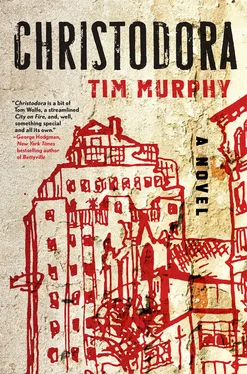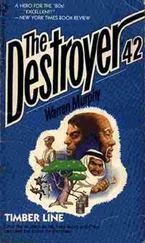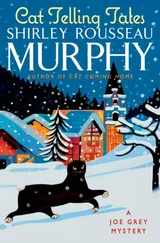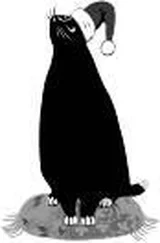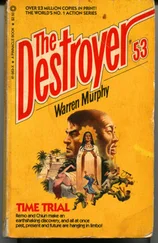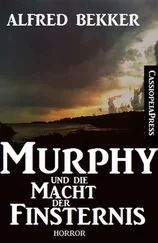Now it was she who was wounded. “A lot of people think I’m cool,” she’d say. “My students think I’m cool. You don’t need to ride a skateboard to be cool.”
“I’m not saying I need to ride a skateboard to be cool,” he’d reply slowly, as though he were talking to an idiot. “I’m saying I want to, because it’s cool.”
“Well, thank you for that clarification,” Milly would say. “I think this is definitely an issue we can table until you turn twelve.”
“We can what?”
“We can table,” she said. “Meaning we can just put on the table and deal with it later.”
He said nothing for several seconds. “That’s weird,” he finally said.
“It’s not weird,” she’d say. “I think eight is too young for you to be out on a skateboard.”
“No, using that word like that,” he’d say. “A table is a noun.”
“Some nouns you can also use as verbs.”
And on and on they’d go like that, and amid it, Milly would realize that she was pretty much happier than she’d ever been in her life, that at this moment, right here — as the old guys who played chess at the stone chess tables in the park’s southwest corner looked up and said, “Heeeey, Mateeeo, how you doin’ today, little man?” and as Mateo waved back to them — she felt no trace of the doubt and anxiety that usually nagged at the edges of her mind. Sometimes, very quietly, in a whisper even to herself, she’d think, I made the right decision four years ago, I did the right thing. This was the right choice for us, this little guy needed us.
“You’re very popular with the chess crowd,” she’d remark as they exited the park and made their way to, say, the Belgian fries stand, which, along with clusters of skateboarders and paper and crayons, was a bliss-trigger for Mateo. After she said it, Milly would glance down at Mateo to see his face beaming with smug pride at his park popularity, and she’d pull him toward her in a smothery sort of hug while they walked. And when he stayed there for just one moment of surrender before tugging himself away as any eight-year-old boy would do from his mother, she’d again think, I did the right thing.
So this morning, before the TV cartoons, she said, “Okay, well, I guess no haircut then.”
“No haircut,” he repeated sternly, his eyes still fixed on the screen.
“So should we see if Elysa and Kenji want to come out with us? It’s beautiful outside. We can all take Kenji to the dog run together.”
“Yeahhhh!” he exploded, his feet suddenly kicking his butt rapidly. “Kenji, Kenji, Kenji!”
“Go get dressed,” she said.
Twenty minutes later, they were standing in front of the Christodora in T-shirts, shorts, and flip-flops. Kenji, a manic boy-puppy pit-shepherd mix, tore out of the lobby, dragging behind him on a leash Elysa, who wore kneesocks, Converse low-tops, and a cotton plaid minidress, her red curls corkscrewing in all directions. She was a thirty-three-year-old off-Broadway actress who sent everyone in the building AOL e-mail invites to her plays.
Mateo and Kenji lunged at each other. “Kenji, Kenji, Kenji, Kenji, I love you, Kenji, Kenji, Kenji!” Mateo laughed hysterically while the dog licked his face shiny wet.
“It looks like the two guys missed each other,” noted Elysa, who often spoke in the knowing, indulgent tones of a much older woman.
“Indeed it does,” said Milly, giving a kiss hello to Elysa, her best friend in the Christodora. “A reunion long overdue.”
“Kenji, down!” commanded Elysa, aiming to put some bass in her voice and sound authoritative. Kenji obeyed her for about two seconds before resuming his love assault on Mateo, who screamed again in delight.
“Kenji, you’re crazy today!” Mateo exclaimed.
An explosion of barking came from the lobby. A fully grown, glossy-black pit-shepherd mix scrambled out the door, followed on a massive leather leash by Hector, shaven headed, with a leather vest fitted snugly over a shaven, muscled brown chest. The leather vest melted into tight black jeans and construction boots. His eyes were obscured by massive black wraparound sunglasses. A lit cigarette dangled between his full lips.
Instantly, Kenji and the other dog were lunging ferociously at each other, their growls so menacing that the boys playing basketball across the street in the park stopped and turned to stare. Elysa and Hector held their dogs apart.
Hector fumbled to take the cigarette from his mouth. “Sonya!” he barked. “Shut the fuck up! Back the fuck down!”
Mateo, whom Milly had scurried to and pulled back from the fracas behind her right arm, watched the proceedings, rapt. “He just said the F-word, Mom,” Mateo noted.
“I know,” muttered Milly, not amused. She hadn’t seen Hector in a few weeks and was dumbstruck by his dishevelment.
By this point, both Elysa and Hector had reeled in their dogs and crouched down to grip them in a soothing embrace. Hector let his smoldering cigarette fall to the sidewalk. “You’ve got to really curb your dog, Hector,” Elysa said, an angry edge in her voice. “She’s enormous and she’s rough.”
“She’s a crazy girl,” Hector said. He put the wild-eyed dog in a headlock. “Aren’t you, you crazy bitch? Aren’t you, puta ?”
Milly cringed at the explosion of profanity in front of Mateo. Elysa spoke for her: “Hector, you’re in front of a kid!”
Hector didn’t seem to register the comment. “I gotta walk her bad,” he said. He picked up the cigarette and put it back in his mouth. “She’s full of crazy energy today.” He stood up and yanked on the dog’s leash. “Come on, crazy girl. Look, you got me in trouble.” He shambled down the sidewalk and around the corner with a cocky gait that reminded Milly of John Travolta in the opening shot of Saturday Night Fever , his dog, Sonya, all the while straining her neck back to glower hatefully at the pit-mix puppy.
“Good Lord,” Milly finally said, exhaling.
“Why’s his dog so mean?” Mateo asked.
“She’s just not well trained, Mateo,” Elysa said.
The four of them made their way into the park. At the dog run, Elysa took the puppy inside, let him off his leash and into the scrum of wrestling canines, then walked to the gate, where Milly and Mateo waited on the other side. (Milly would not let Mateo into the run, fearing he’d be mauled. It had happened to other children. Horribly, in fact.)
Mateo ran along the fence to follow the dogs at play, leaving the two women alone for a moment.
“He was so high, Milly,” Elysa said, disapproval in her voice. “Hector.”
“That’s what everyone’s saying,” Milly replied. She didn’t have much drug experience except for college-era pot and one episode each with mushrooms and ecstasy, so she wasn’t quite sure how to tell if people were high, or what they were high on. “His dog sure was crazy.”
“Probably because he’s been holed up in his apartment since yesterday doing drugs and hadn’t taken her out. The poor thing. That’s animal cruelty.”
Milly shook her head. “He was such a big deal once in the whole world of AIDS research.”
“You told me. He used to work with your mother, right?”
“ For my mother,” Milly corrected. “He started under her, like, twenty years ago. And then he got fed up because nobody was doing anything and he became one of the activists, and then he became a huge deal and was working in the Clinton administration to release all those new medications. He was always in D.C. I think he even lived there for a year or two before he moved into the Christodora.”
Elysa slowly shook her head. “He looks worse every time I see him.” She paused. “I think I know what drug he’s on.”
Читать дальше
